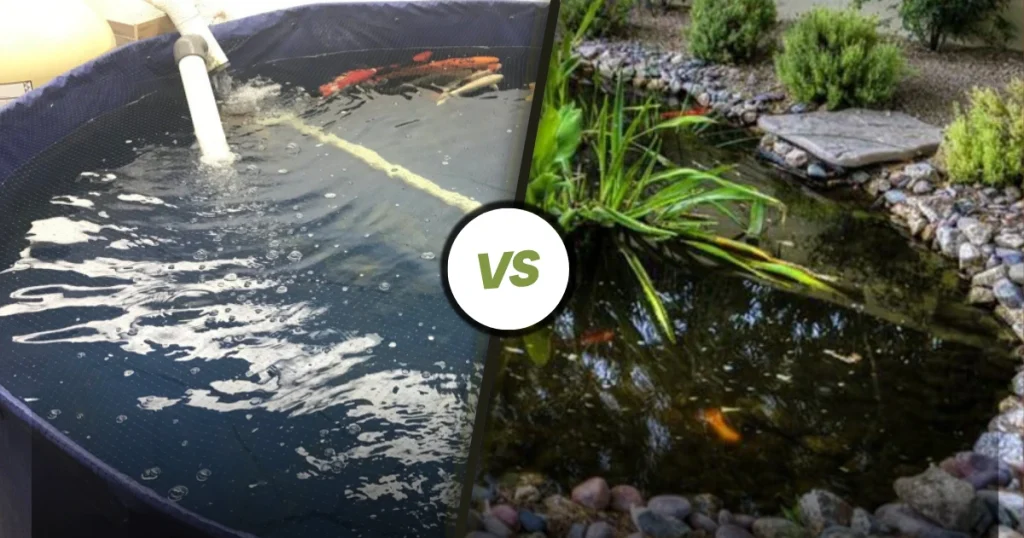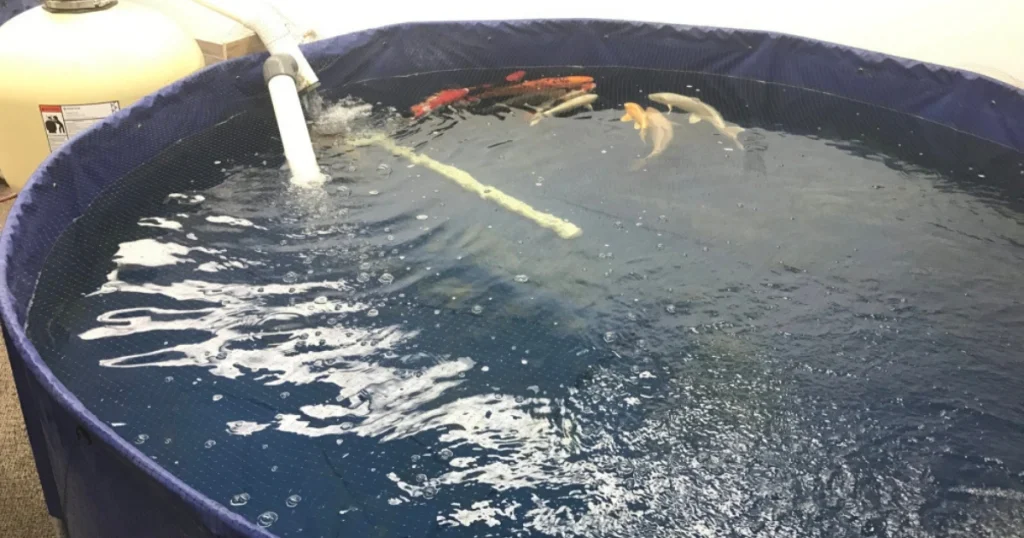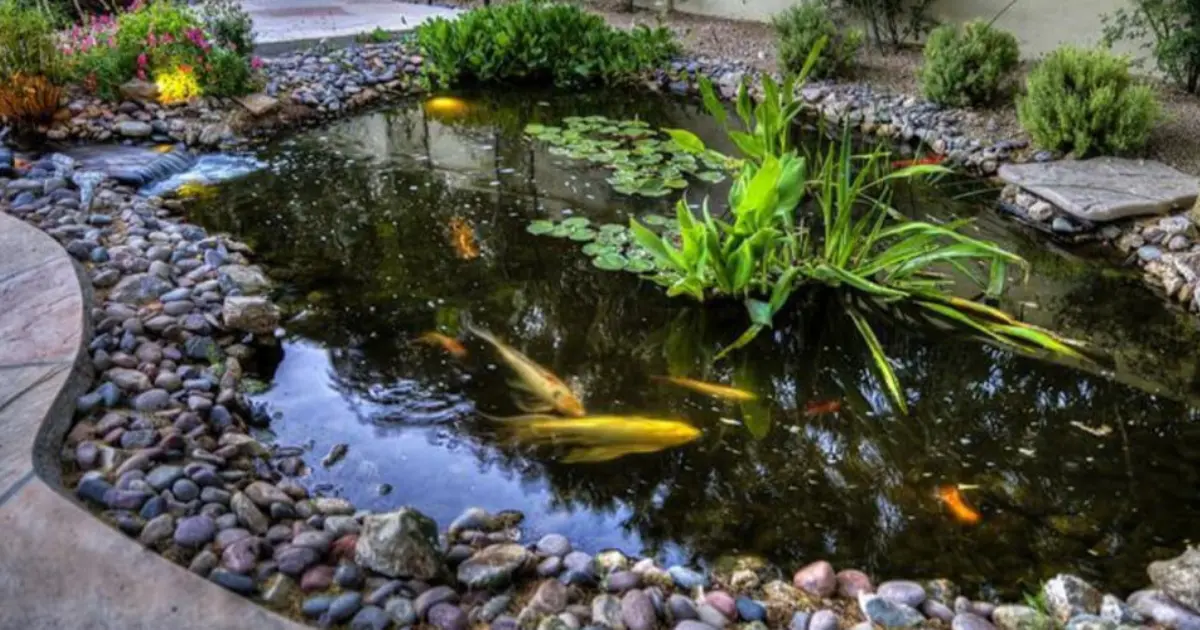
Many homeowners want a pool in their backyard. Pools provide a place to relax, exercise, and enjoy family time. But there are options beyond traditional pools. Swimming ponds are becoming popular. They are natural-style pools that use plants and natural filtration.
Choosing between a swimming pond and a traditional pool can be confusing. Both have pros and cons. This guide will help you understand the differences and make the right choice. We will also explain why a swimming pond contractor can help you plan and build a natural swimming pond that fits your home and lifestyle.
Table of Contents
ToggleWhat is a Swimming Pond?

A swimming pond is a pool designed to look like a natural pond. It uses plants and biological filtration to clean the water. Chemicals like chlorine are not used.
Features of a Natural Swimming Pond
Most swimming ponds have two zones. The first zone is the swimming area. It is deep and open for swimming. The second zone is the regeneration area. This area has plants that filter the water naturally.
Swimming ponds often include rocks, gravel, and native plants. These elements help create a balanced ecosystem. Water stays clean through natural processes rather than chemicals.
Role of a Swimming Pond Contractor
A swimming pond contractor designs and builds these ponds. They make sure the pond is safe, functional, and healthy. Contractors know how to balance the ecosystem and maintain water quality. They also install pumps, filtration systems, and water features.
What is a Traditional Pool?

A traditional pool is a man-made pool that uses chlorine or saltwater to keep water clean.
Features of a Traditional Pool
Traditional pools can be made of concrete, fiberglass, or vinyl. They usually have mechanical filters that remove debris. Chlorine or other chemicals keep water free of bacteria and algae.
Traditional pools can include steps, diving boards, slides, and heating systems. They are straightforward in design and maintenance, but they rely heavily on chemicals and pumps.
Pros of Swimming Ponds
Swimming ponds have many advantages over traditional pools.
Natural Water Environment
Swimming ponds provide chemical-free water. You swim in water that is clean but natural. Many people prefer this because it is gentler on skin, eyes, and hair.
Health Benefits
Swimming in a natural pond can feel relaxing. The water is soft and does not irritate skin. Plants and microorganisms help maintain a healthy environment.
Aesthetic Appeal
Swimming ponds blend with the landscape. They look like a natural feature rather than a man-made pool. Plants and rocks make the pond part of the backyard scenery.
Lower Chemical Costs
Since no chlorine or chemicals are needed, swimming ponds reduce ongoing chemical expenses.
Long-Term Sustainability
Swimming ponds can be eco-friendly. They often use less energy because they rely on natural filtration. They can also attract wildlife like birds and frogs, making the backyard more lively.
Cons of Swimming Ponds
Swimming ponds also have challenges.
Higher Initial Costs
Building a swimming pond requires careful design. Hiring a swimming pond contractor and installing natural filtration can be expensive.
Larger Space Requirements
Swimming ponds usually need more space than traditional pools. The regeneration zone takes room.
Maintenance and Expertise
Maintaining the biological balance in a swimming pond requires knowledge. Plants must be trimmed, water levels monitored, and filters checked. A contractor can guide you, but it requires effort.
Water Temperature
Swimming ponds may feel cooler than traditional pools. Natural water temperature depends on sunlight and weather. Heating systems are possible but can add to costs.
Pros of Traditional Pools
Traditional pools are still very popular. They have their own benefits.
Easy to Swim Year-Round
With heating, traditional pools provide comfortable water all year. You can swim even on cooler days.
Predictable Water Quality
Chemical treatment ensures the water is clear and free from bacteria. Algae growth is minimized.
Smaller Space Requirement
Traditional pools can fit in smaller yards. They do not need separate regeneration zones.
Recreational and Exercise Benefits
Traditional pools are ideal for laps, pool games, and fitness exercises.
Established Construction and Maintenance
Many contractors are experienced with traditional pools. Finding repair services is easy.
Cons of Traditional Pools
Traditional pools also have drawbacks.
Use of Chemicals
Chlorine and other chemicals can irritate eyes and skin. Some people dislike the smell or taste of treated water.
Ongoing Maintenance Costs
Traditional pools require chemicals, equipment, and labor to maintain. These costs add up over time.
Aesthetic Limitations
Traditional pools often look like a hardscape feature. They do not blend as naturally into landscaping.
Environmental Impact
Traditional pools consume more water and energy. Chemicals can also affect the environment if not handled correctly.
Cost Comparison: Swimming Ponds vs Traditional Pools
Initial Construction Costs
Swimming ponds usually cost more to build. Contractors must design natural filtration, plant zones, and landscaping. Traditional pools have standard designs and materials, which are less expensive upfront.
Maintenance Costs Over Time
Swimming ponds reduce chemical costs but require plant and water care. Traditional pools have predictable maintenance costs for chemicals, pumps, and cleaning.
Long-Term Value
Swimming ponds can increase property value and provide a natural backyard feature. Traditional pools offer recreation but less eco-friendly appeal.
Maintenance Requirements Comparison
Swimming Ponds
- Trim plants regularly.
- Remove sediment from the pond bottom.
- Monitor water quality, pH, and ecosystem balance.
Traditional Pools
- Add chemicals weekly.
- Clean filters and pool walls.
- Adjust pH and chlorine levels.
- Winterize or open pool seasonally.
Time and Expertise Needed
Swimming ponds require some expert guidance, especially at first. Traditional pools are simpler but still need regular chemical maintenance.
Environmental Impact Comparison
Swimming Ponds
- Use natural filtration with plants and microorganisms.
- Can recycle water.
- Encourage wildlife and biodiversity.
Traditional Pools
- Rely on chemicals for water safety.
- Higher energy use for pumps and heating.
- Water loss from evaporation may require frequent refilling.
Design and Aesthetic Considerations
Natural Swimming Pond Design Ideas
- Curved or irregular shapes.
- Use rocks, gravel, and plants for edges.
- Include shallow areas for children and plants.
Traditional Pool Design Options
- Rectangular or geometric shapes.
- Steps, ladders, and diving areas.
- Concrete, fiberglass, or vinyl surfaces.
Landscaping Around the Pond or Pool
- Swimming ponds integrate naturally with the garden.
- Traditional pools may use hardscape features like tiles, decks, or fences.
Choosing Between a Swimming Pond and a Traditional Pool
Factors to Consider
- Space availability
- Budget
- Maintenance preference
- Personal lifestyle and swimming needs
Who Benefits Most from Swimming Ponds
- Families seeking eco-friendly, chemical-free water
- People who want a backyard feature that blends with nature
- Homeowners willing to invest in design and maintenance
Who Benefits Most from Traditional Pools
- People prioritizing exercise and recreational swimming
- Smaller yards that cannot fit a swimming pond
- Those who prefer predictable water quality with chemicals
Consulting a Swimming Pond Contractor
A swimming pond contractor can help with design, construction, and maintenance. They can provide a custom natural swimming pond that fits your backyard and lifestyle.
Frequently Asked Questions (FAQ)
Can you swim year-round in a swimming pond?
It depends on climate. Swimming ponds may need heating for cold seasons.
How long does it take to build a swimming pond?
Construction can take a few weeks to months, depending on size and complexity.
Are swimming ponds safe for children?
Yes, with shallow areas and supervision. Contractors can design child-safe ponds.
How much does a swimming pond cost compared to a traditional pool?
Swimming ponds are usually more expensive initially but may save on chemical costs over time.
Do swimming ponds require regular maintenance?
Yes. Plants and water need care, but the maintenance is natural and chemical-free.
Can a contractor help maintain my swimming pond?
Yes, many swimming pond contractors offer maintenance services.
Conclusion
Swimming ponds and traditional pools both have advantages and disadvantages. Swimming ponds provide a chemical-free, natural environment and blend with landscaping. Traditional pools offer predictable water quality, smaller space requirements, and easier recreational use.
Choosing the right backyard water feature is a big decision! Whether you’re drawn to the natural beauty of a swimming pond or the reliability of a traditional pool, we’re here to help. Contact our expert team today to explore your options and get a custom design that fits your space and lifestyle. Let us guide you through the process from planning to installation.
Book your free consultation now or Call us and start building your dream backyard!
